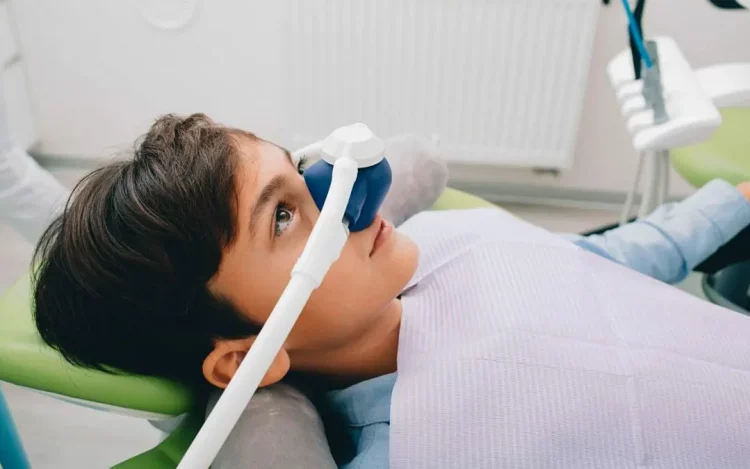Introduction: The Importance of Prevention in Oral Health
A beautiful, healthy smile is something many people aspire to, but achieving it requires more than just brushing and flossing. While these habits are essential, regular dental checkups play a crucial role in preserving long-term oral health. Many people only visit the dentist when they experience pain or visible problems like cavities, but regular checkups are a proactive approach that can help prevent more serious issues down the road.
So, why are regular dental checkups so important? Let’s explore how these visits are key to maintaining a lifetime of healthy teeth and gums.
What Happens During a Regular Dental Checkup?
Before understanding why these checkups are vital, it’s essential to know what happens during a typical visit. A dental checkup usually includes:
- Comprehensive Oral Exam: Your dentist will thoroughly examine your teeth, gums, and mouth for any signs of issues like cavities, gum disease, or oral cancer. This allows for the early detection of problems before they worsen.
- Professional Cleaning: Even if you brush and floss regularly, plaque and tartar can still build up, especially in areas that are difficult to reach. A dental hygienist will clean your teeth, removing plaque and tartar to prevent cavities and gum disease.
- X-Rays (When Necessary): Dental X-rays are taken to check for hidden problems such as cavities between your teeth, bone loss, or other concerns that are not visible to the naked eye. Early detection of these issues can prevent more serious complications later.
- Gum Health Evaluation: Your dentist will check for signs of gum disease, such as inflammation or bleeding. Gum disease is a leading cause of tooth loss, and catching it early can save your teeth.
Why Are Regular Dental Checkups Crucial for Your Long-Term Oral Health?
1. Early Detection of Dental Issues
One of the most significant benefits of regular dental checkups is the early detection of problems. Many dental conditions, such as cavities and gum disease, don’t show symptoms until they are well advanced. Regular visits allow your dentist to identify issues in their early stages when treatment is more straightforward and less expensive.
- Cavities: Cavities can start as small, barely noticeable spots on your teeth. If left untreated, they can lead to severe tooth decay that may require root canals or even extractions. Early detection means simple fillings rather than more extensive procedures.
- Gum Disease: Gum disease starts with mild inflammation and bleeding of the gums (gingivitis) but can progress to more severe stages, including periodontitis, which can lead to tooth loss. Regular checkups allow your dentist to catch gum disease early, preventing tooth loss.
- Oral Cancer: Regular dental exams also include screenings for oral cancer, which can often go unnoticed until it has reached a more advanced stage. Catching oral cancer early can significantly increase the chances of successful treatment.
2. Preventing Serious Issues Before They Arise
Regular dental checkups aren’t just about treating existing problems—they also help prevent future issues. By maintaining a proactive approach to oral health, you can avoid many common dental problems that could otherwise cause pain, discomfort, and expensive treatments down the line.
- Preventing Tooth Loss: Gum disease is one of the leading causes of tooth loss. By catching gum disease early, your dentist can help you reverse or manage it, preventing tooth loss and preserving your smile.
- Cavity Prevention: Regular visits allow your dentist to detect and treat small cavities before they worsen. By sealing cavities early, you can avoid the need for fillings, root canals, or extractions.
- Tartar and Plaque Control: While brushing and flossing are essential, they may not always be enough to remove all plaque, especially in hard-to-reach areas. Professional cleanings during checkups remove tartar buildup that your toothbrush and floss can’t address, helping to prevent decay and gum disease.

3. Maintaining Overall Health
Your oral health is closely linked to your overall health. Research has shown that poor oral health can contribute to a range of systemic health conditions, including:
- Heart Disease: Gum disease has been associated with an increased risk of heart disease. The inflammation caused by gum disease may contribute to plaque buildup in the arteries, raising the risk of heart attacks or strokes.
- Diabetes: There’s a strong connection between gum disease and diabetes. People with diabetes are more likely to have gum disease, and gum disease can make it harder for diabetics to control their blood sugar levels.
- Pregnancy Complications: Gum disease during pregnancy has been linked to premature births and low birth weight. Regular dental checkups can help ensure that your gums stay healthy, reducing the risk of complications during pregnancy.
By maintaining good oral health, you not only protect your smile but also reduce the risk of systemic health issues.
4. Cost-Effective Preventive Care
Preventive care is always more affordable than restorative care. Catching problems early during regular dental checkups means fewer major procedures down the line. For example:
- Fillings vs. Root Canals: A simple filling to treat a small cavity is far less expensive than a root canal or an extraction, which is often needed when cavities are left untreated for too long.
- Scaling and Root Planing vs. Surgery: If caught early, gum disease can be treated with deep cleaning techniques like scaling and root planing. However, untreated gum disease can lead to tooth loss, requiring expensive implants or dentures.
By keeping up with regular dental visits, you’re investing in a lifetime of oral health and avoiding costly treatments in the future.
How Often Should You Have a Dental Checkup?
The general recommendation is to have a dental checkup every six months, but this can vary depending on your individual oral health needs. People with a history of gum disease, cavities, or other dental issues may require more frequent visits, while those with healthy teeth and gums may be able to go longer between visits.
It’s always best to consult your dentist about the frequency of your checkups based on your unique health profile.
Conclusion: The Lifelong Benefits of Regular Dental Checkups
Regular dental checkups are an essential part of maintaining a healthy, beautiful smile throughout your life. By visiting the dentist regularly, you can catch problems early, prevent serious issues, maintain your overall health, and save money in the long run.
Incorporating regular checkups into your routine ensures that your teeth and gums stay healthy for years to come, helping you maintain a confident and radiant smile throughout your life.













































Discussion about this post